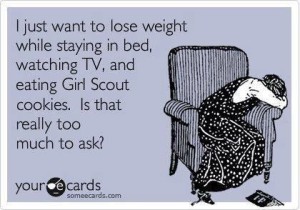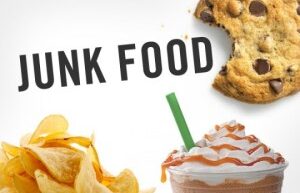Did you know the average person actually gains 11 pounds each time they go on a diet? To make matters worse, when they lose weight, they lose both muscle and fat. But when they regain weight, they gain back only fat. Considering muscle burns seven times as many calories as fat, their metabolism is slower than when they started the diet. The terrible truth is that they now require fewer calories to maintain their weight.
Here are four reasons most diets fail and how to succeed.
1. You are dieting hard and not smart.
Controlling hunger is a science, not an act of will. Most diets focus on eating less which will elicit hunger. Unfortunately, you can only starve yourself for so long before your body and brain step in to protect you from yourself. As our hunger rapidly increases, our cravings spike and our metabolism slows way down to conserve energy. Eating foods that are low fat, high carbohydrate or high in sugar actually increase hunger and slows down metabolism.
Keys to Success:
– Eat enough real whole fresh foods to satisfy your appetite.
– Try to eat protein at every meal which will not only help you feel full, but will also help you balance your blood sugar and insulin levels.
– Eat fat, protein, and fiber to slow insulin spikes.
2. You concentrate on calories.
Eating less and exercising more is not the answer. The old mantra of calories in/calories out being the key to weight loss has been debunked through countless studies. Scientists now realize that all calories are not created equally.
While some calories make you gain weight, other calories make you lose weight. Any foods that spike insulin activate a change in your metabolism. Some examples include sugars, grains, white starches (potatoes, pasta, rice, bread), excess fruits and beans. Insulin pushes all the energy in your blood from the food you just ate into your fat cells (visceral or belly fat).
This confuses your body into thinking you are starving even though you just ate a whole bag of potato chips or Oreos. Don’t forget, two things happen when your body thinks you are starving – you increase hunger and slow metabolism.
If you have ever eaten a big meal, then were hungry an hour later for something sweet, that’s why.
Keys to Success:
– Emphasize very low-glycemic foods as the staples of your diet such as nuts, seeds, chicken, fish, grass fed meats, and low-glycemic veggies like greens.
– Only use sugar in very small doses.
– If you have to ask “is ______ OK?” It isn’t.
– Don’t use artificial sweeteners. I talked about them extensively in my article Does Diet Soda Make You Fat?
3. You still believe in the low-fat diet.
Most people still think we should avoid egg yolks and coconut oil, and that eating a low-fat diet will help them lose weight. If you examine what has happened to Americans in the last 30 years of following this advice, the evidence suggests otherwise. We are fatter than ever (70 percent of us are overweight), and now, 1 in 2 Americans has pre-diabetes or type 2 diabetes.
Harvard scientist Walter Willet reviewed all the science on low fat and weight loss and found that it is not eating fat that makes you fat but sugar. Other studies show that by eating more fat and less carbs you can increase your metabolism to burn an extra 300 calories per day. That’s like getting the benefit of doing my tabata workout without having to get off the couch.
Keys to Success:
– Don’t fear fat. It actually makes you feel full, speeds up your metabolism, and helps you lose weight.
– Eat vegetable fats, such as avocado, nuts, seeds, coconut butter or oil.
– Eat clean animal fats (organic eggs with the yolk, chicken, grass-fed meats) and fish with omega 3 fats (sardines, herring, wild salmon, black cod).
– Read Claudia’s article on How to Eat Healthy Fats for more information.
4. You don’t plan.
Losing weight doesn’t happen without proper preparation and execution. Think of the last time you had a major goal and reached it. You went above and beyond all expectations. Whether it was a test in school, an athletic event, or a project at work you were successful because you put the time into it needed to win.
Too often we look at our health as something that we can work on part time and still get results. Most of us fail because we don’t set up the conditions for us to succeed.
Keys to Success:
– Go grocery shopping at least once per week (fresh whole foods don’t last long in the refrigerator).
– Have a plan to buy the right foods at the grocery store
– Plan your meals ahead of time (including breakfast, snacks, lunch, and dinner).
– Prepare your meals ahead of time if your schedule doesn’t allow you to prepare them right before meal time because of work, school, travel or a busy schedule.
– Create an emergency travel food pack.
– Plan out your exercise schedule for the week in advance.







Add comment